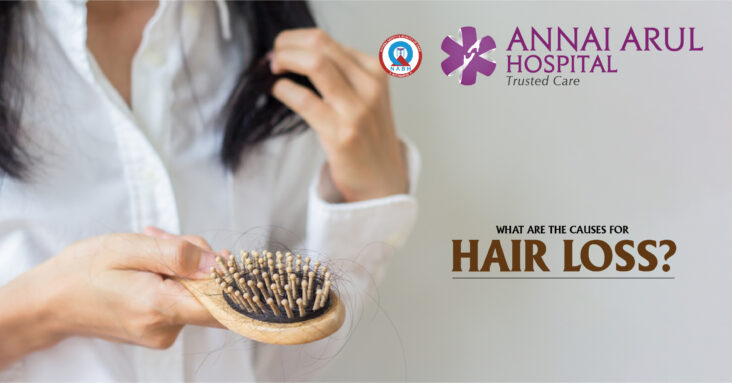WHAT ARE THE CAUSES FOR HAIR LOSS?
In humans, hair grows everywhere on the skin except on places like the palms of our hands and the soles of our feet, eyelids, belly buttons. In some places, the hair is so fine that it is not easily visible to the eyes.
Hair is made of a protein called keratin that is produced in hair follicles in the outer layer of the skin. As the follicles produce new hair, the old cells are pushed out through the surface of the skin at the rate of six inches per year. The hair you see only a string of dead keratin cells. The average human head has 100, 000 to 150,000 hairs and loses about 100 of them daily.
Each hair follicle has its own life cycle that is influenced by the age of the person, health condition, and many other factors.
What causes hair loss?
Scientists and researches are yet not certain what causes hair loss in humans. It is baffling why some hair follicles are programmed to have a shorter growth period than others. Though there are many identified factors that can influence hair loss:
Hormones: Hormones such as abnormal levels of androgens (male hormones produced both by men and women) can cause hair loss.
Genes: Genetic factors both in men and women may influence a person’s predisposition to male or female pattern baldness. It is usually inherited from their parents.
Stress, illness and childbirth: They are all causes that bring about temporary hair loss. Ringworm caused by a fungal infection also causes considerable hair loss.
Drugs or medications: Certain treatments using chemotherapy drugs, blood thinners, beta-adrenergic blockers used to control blood pressure and birth control pills can cause temporary hair loss.
Burns and injuries: Burn, injuries and even x-rays can cause temporary hair loss. In such cases, normal hair growth returns once the injury is healed. If the injury causes a scar, then the hair will never regrow in the area.
Autoimmune disease: Certain autoimmune disease will cause alopecia areata. It happens when the immune system revs up for no reason and affects the hair follicles. In most people with alopecia areata, the hair growth returns to normal. The hair though may be thinner and lighter in colour.
Cosmetics and beauty procedures: Some cosmetic products and their prolonged use can cause hair loss. Certain beauty procedures like shampooing too often, perms, bleaching, and dyeing hair can cause hair to become thin, weak and brittle. Tight braiding, using rollers, hot curlers, running hair picks through tight curls can also damage your hair. The procedures do not cause baldness and hair does return to its normal growth. But severe, repeated use can cause permanent damage which can lead to bald patches.
Medical conditions: Health issues like thyroid disease, lupus, diabetes, iron deficiency anemia, eating disorders and anemia can cause hair loss. Most time when the underlying condition is treated the patient recovers their hair growth.
Hair loss treatments
Mainly hair loss is treated with the following systems.
Minoxidil is a topically applied hair preparation provides modest hair growth to parts of the head where it has gone totally bald.
Hair transplantation is the relocation of plugs of skin from parts of the scalp containing active hair follicles to bald areas.
Corticosteroids are used to treat alopecia areata, an autoimmune disorder that causes hair to fall out in clumps, resolve spontaneously.
Lasers are sometimes incorporated in combing devices. These devices can be used at home or office and help stimulation new hair growth.
How to prevent hair loss?
Although hereditary balding cannot be prevented, you can protect your hair from damage and stop it from getting thinner.
The emphasis is on preventing tremendous stress on your hair at all times. Hairdryers, hot curlers, hair dyes, tight braids and hair straightening products and chemicals laden with cosmetics can cause hair to become dry, brittle and thinner.
If you remain careful of easing the stress on your hair, you are on your way to recovering your crowning glory.
==============


